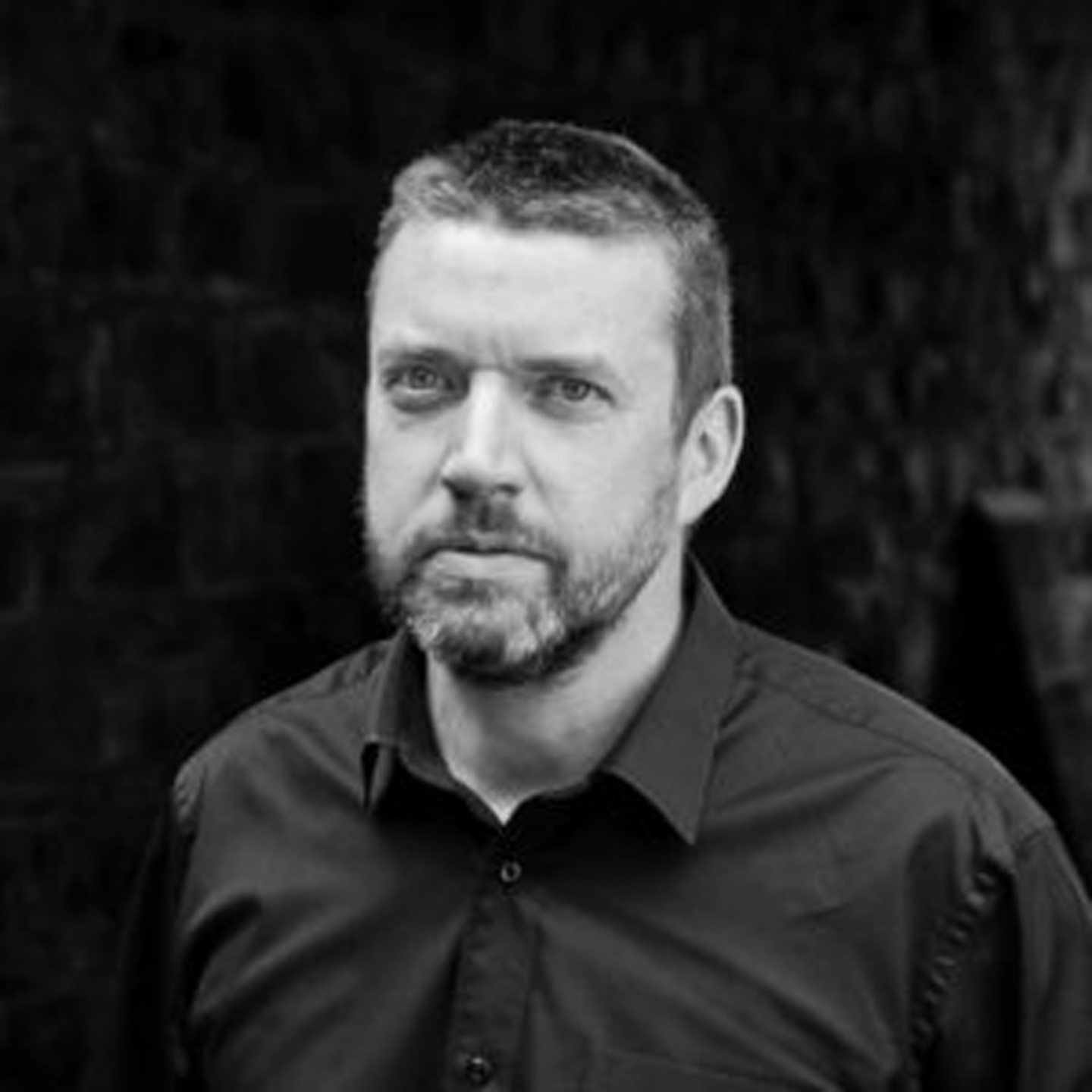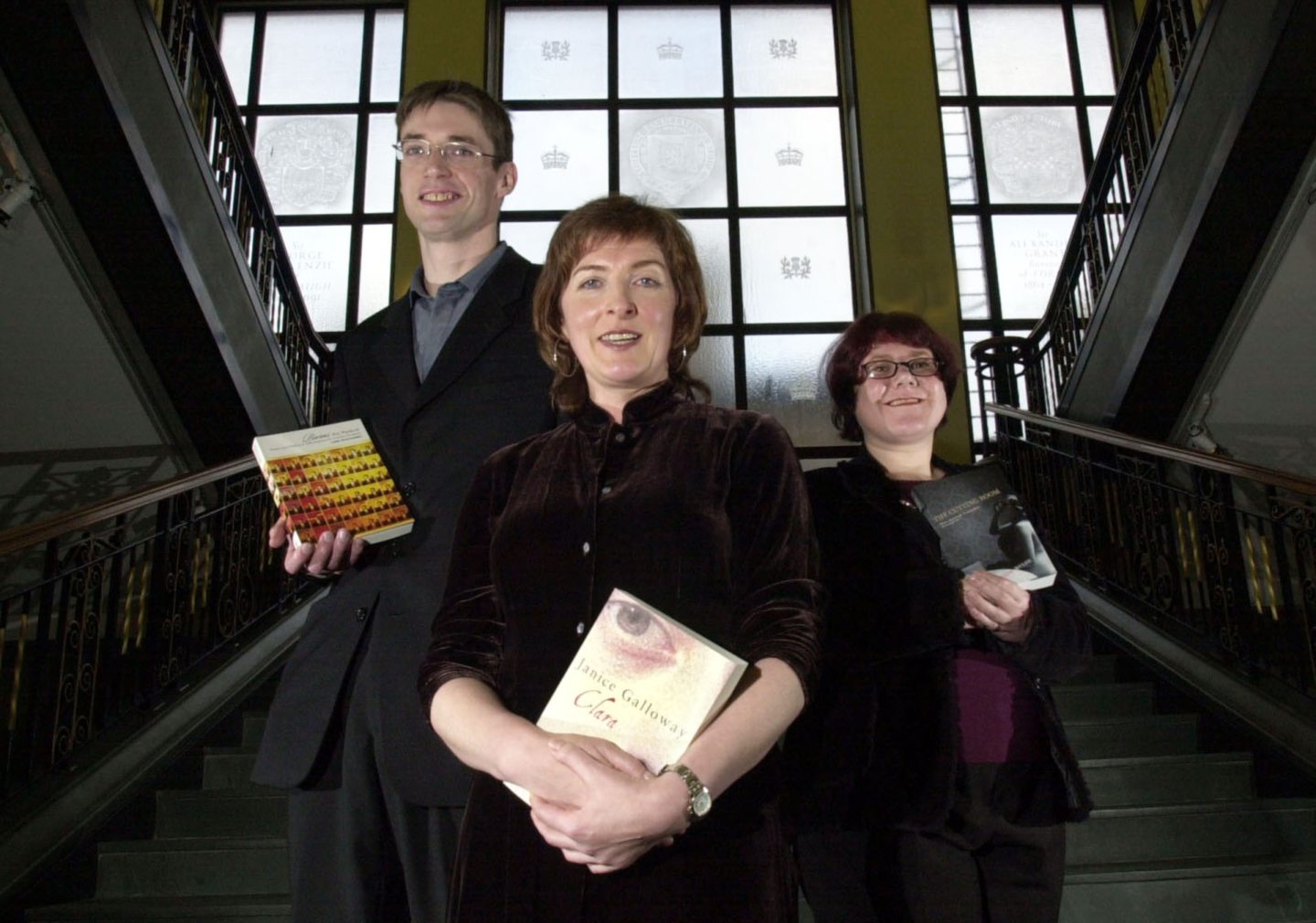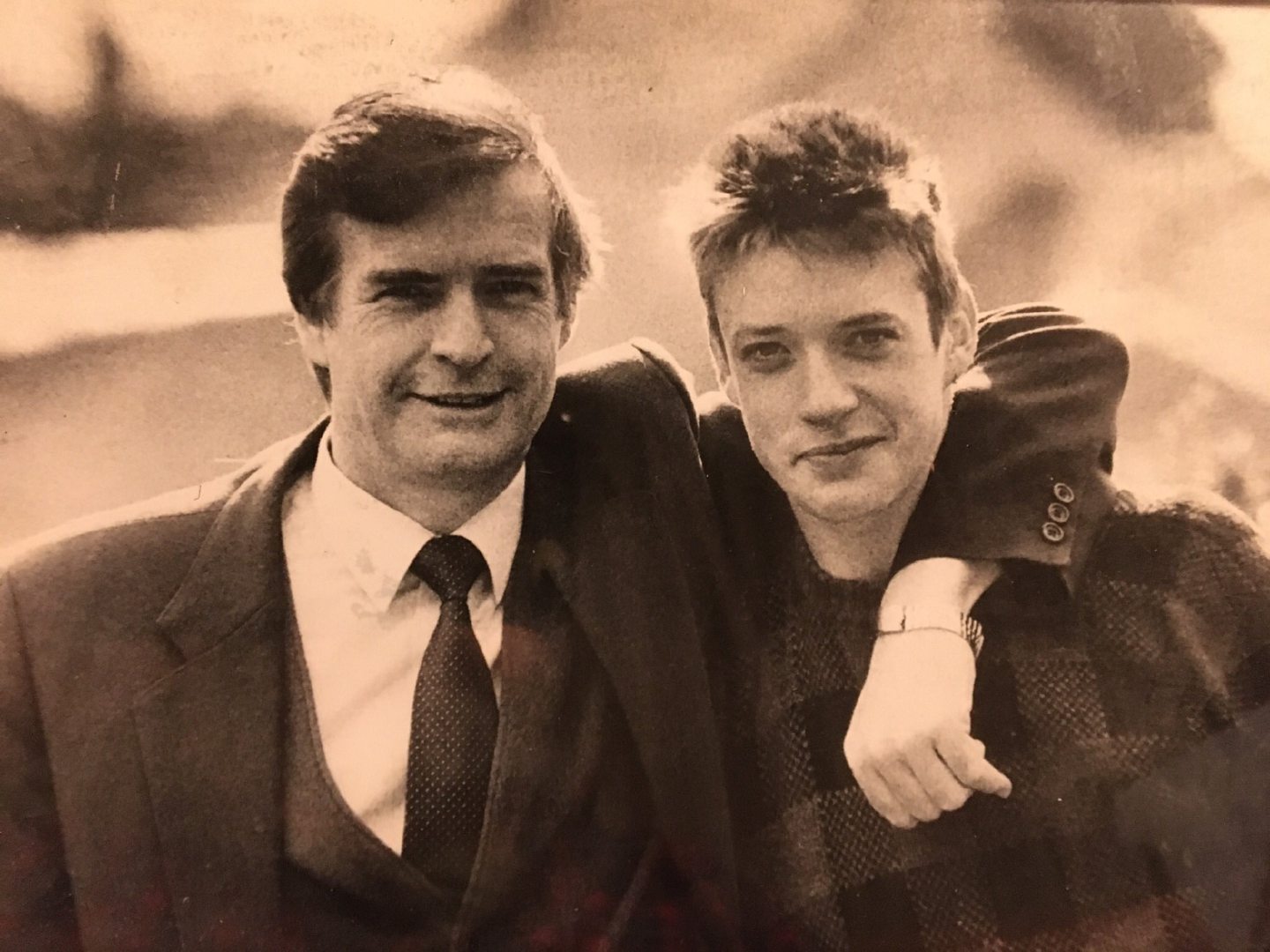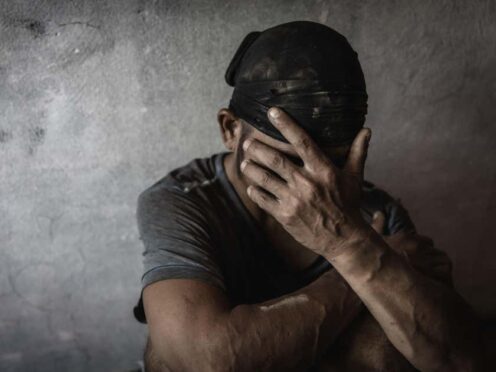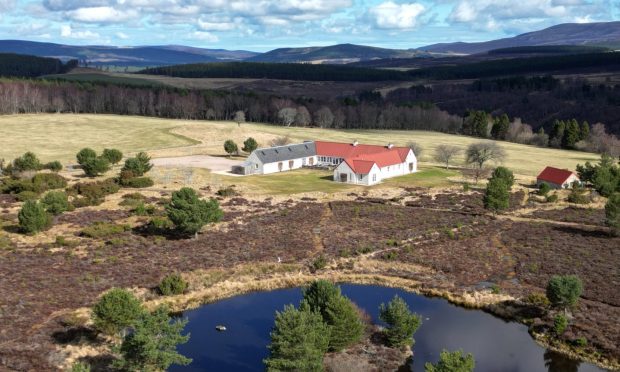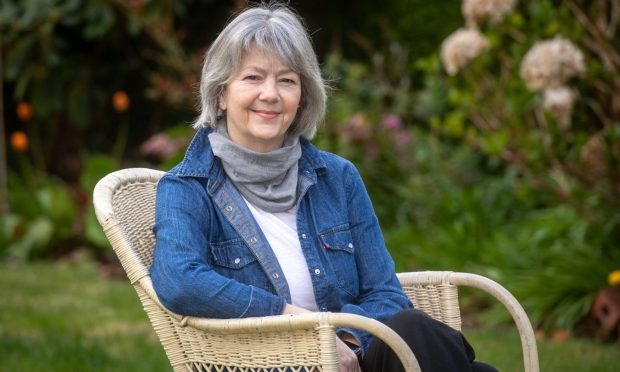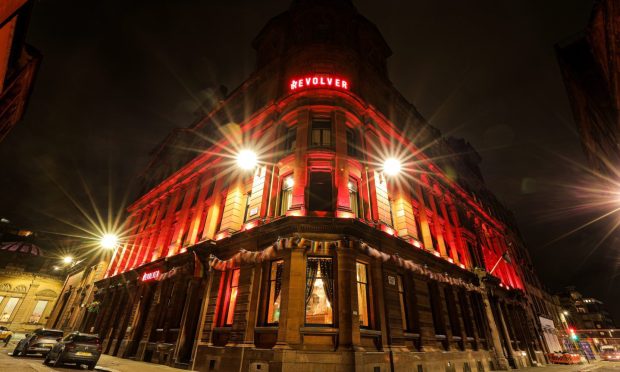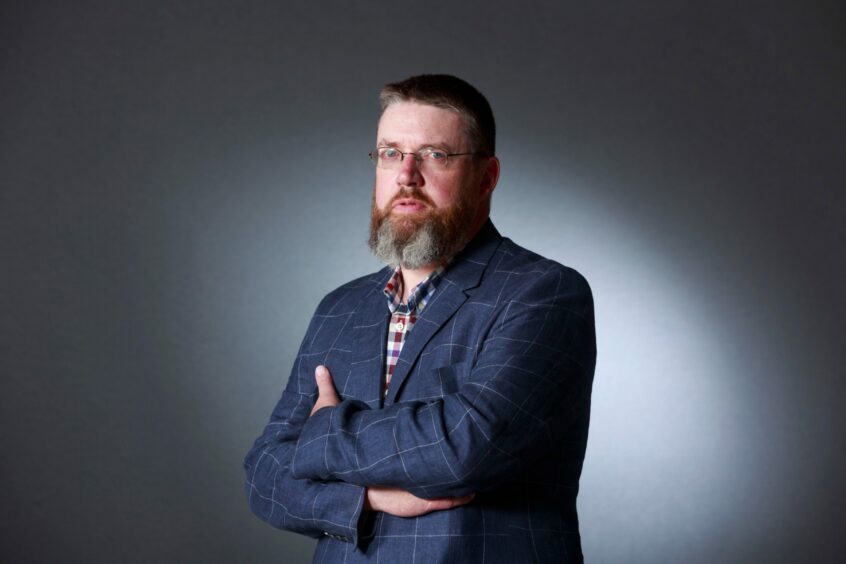
Crime writer Liam McIlvanney says taking part in Aberdeen University’s WayWORD will “feel like coming home”.
Film noir intrigues many people with its captivating cast of hard-boiled gumshoes, femme fatales, cynical coppers and desperate characters never quite sure if they are standing on the edge of a windfall or a catastrophe.
The genre brought us Humphrey Bogart and Edward G Robinson, Veronica Lake and Barbara Stanwyck, in movies which were about far more than crime and punishment as they examined the small missteps which often led to larger sins and the gallows.
In recent years, Scotland has been a hotbed for these type of books, inspired by the godfather of Tartan Noir, William McIlvanney, and millions of readers across the world have found themselves spellbound by the latest works from Val McDermid and Ian Rankin, Stuart MacBride and Denise Mina, Peter May, Louise Welsh and Lin Anderson.
Most of these authors are based in Scotland, but on the other side of the world, in New Zealand, Liam a former Aberdeen University lecturer – and the son of the aforementioned William – has become a superb exponent of the crime milieu, whether exploring the Bible John serial murders in his award-winning work The Quaker or delving deep into dark waters in last year’s The Heretic.
And now, Liam is returning to his north-east roots to take part in the WayWORD festival, organised by Aberdeen University, which promises a mix of literature, music, art, dance, drama and comedy from September 19 to 24.
The line-up also includes Scotland’s Makar Kathleen Jamie, Claire Keegan and Christine De Luca.
Liam is ‘delighted’ to be returning to Aberdeen
He told me: “I couldn’t be more delighted to be returning to Aberdeen for the WayWORD festival. When I worked at Aberdeen University, I had the office next to the novelist Alan Spence, who helped establish the festival back in the day.
“Alan was a big influence on my own writing and a truly generous, supportive mentor. Indeed, the English department at Aberdeen in the late 1990s and 2000s was a great place to hone your craft as a writer.
“I remember endless stimulating conversations with colleagues like Patrick Crotty, Isobel Murray, David Hewitt and George Watson, and I was lucky enough to teach some amazing students – such as Kirstin Innes and Emma Christie – who have gone on to become successful novelists themselves.
Face-to-face events are great
“My own father was writer-in-residence at Aberdeen Uni on two occasions and always spoke very fondly of his time in the city. The university has a long tradition of reaching out and engaging the local community in literature and the arts and it’s great to see that tradition continuing with the WayWORD Festival.
“I think we all developed a new appreciation for real-life face-to-face events during the Covid pandemic, and I can’t wait to get involved in WayWORD.
“In a lot of ways, it will feel like coming home.”
The Tartan Noir phenomenon has been analysed in myriad publications and, on the 40th anniversary of the TV series Taggart, the question has arisen again as to why Scotland has produced such a conveyor belt of writers who have used their pens as scalpels to dissect the often seedy, seamy underbelly of life and death in Caledonia.
There’s no easy answer, but Liam is surely correct in pinpointing his compatriots’ often grim sense of the macabre, which stretches back centuries to families gathering round the hearth and relating tales of mystery and imagination amid the winter chill.
He said: “I’m not sure why there is such a tsunami of smart and challenging Scottish crime fiction right now, but let’s ride that wave it while it lasts!
We have a tradition of dark stories
“To some extent, I think these things develop a momentum of their own. Once a critical mass of crime writers gets going, new writers see that the crime genre is one in which you can do interesting, innovative things and it rather snowballs from there.
“In a wider perspective, I think the fact that Scotland has such a rich tradition of dark, macabre storytelling – back to the Gothic fiction of James Hogg and Robert Louis Stevenson and even further back to the ballads – gives crime writers a deep well of inspiration to draw on.
“Also, that Calvinist preoccupation with good and evil, with the cloven hoof beneath the spotless robe, has to be a significant factor.
“In my own case, my motivation for novels like The Heretic and The Quaker was to explore some of the dark history of the city of Glasgow, to look behind the spruced up, sandblasted image to an older, bleaker, darker reality.”
Born and bred in Ayrshire, Liam studied at Glasgow and Oxford before spending what he described as “11 extremely happy years” in the bustling heart of Aberdeen, lecturing on Scottish literature in the university’s English department.
And it was here, amid the granite and haar, that he first started writing fiction and weaving his plotlines into compelling dramas which soon attracted attention.
As he said: “My motivation for doing so was fairly simple: I wanted to write something that people might actually read, instead of [producing] yet another academic article that would only be seen by fellow academics.
New Zealand has been wonderful
“I wrote my first novel, All the Colours of the Town, sitting at our kitchen table in Mid Stocket Road [in Aberdeen].
“However, by the time it was published in 2009, I had taken up the opportunity of becoming the first Professor of Scottish Studies at the University of Otago in New Zealand. As a ScotLit specialist, you don’t get too many chances to ply your trade outside of Scotland, so I jumped at the opportunity.
“Living in New Zealand has been a wonderful experience (our four sons have greatly enjoyed the outdoors lifestyle and the laidback attitudes), but I still think of Scotland as home and we’ll probably come back to live in Scotland for good at some point.
Though Liam has become a well-respected academic figure in New Zealand, he’s not in love with the sport – rugby – which preoccupies the minds of so many Kiwis.
Yet, while he admits he isn’t somebody with a litany of hobbies, that’s because he has grown to appreciate that nothing offers him greater happiness than the written word.
He told me: “In my own case, there’s not much distinction between what I do for pleasure and what I do for my job. I read stories, I write stories, I talk about stories.
Watching Killie isn’t very relaxing
“That’s what I do. Sometimes my wife Val will find me reading in my armchair and ask: ‘Is that work or pleasure?’ I’ll shrug and say, ‘What’s the difference?’ As long as I have a book in my hand, I’m happy.
“When I’m back home in Scotland, I enjoy going to Kilmarnock games with my sons, though it might be a stretch to describe watching Killie as a form of relaxation!
“Despite being an adopted Kiwi, I’ve never managed to muster much enthusiasm for rubgy, which makes me something of an anomaly in New Zealand. Still, it means that I have all the more time to read books.”
And there’s nothing wayward about that pursuit.
Details about the festival are available at waywordfestival.com
Five questions for Liam McIlvanney
- What book are you reading? I’m reading everything that Claire Keegan has written. Then I’m reading it again. She writes short books of devastating emotional impact and extraordinary technical brilliance. I can’t wait to attend her session at WayWORD.
- Who’s your hero/heroine? My heroine is my late mother, who raised my sister and I single-handed while battling cancer and holding down a challenging job. That’s real heroism. I miss her every day.
- Do you speak any foreign languages? I have enough French to read [Maigret creator Georges] Simenon in the original, which is always a joy, and my Higher Latin (from 1986) is just about sufficient to let me tackle the Aeneid with a facing-page translation.
- What’s your favourite music or band? The Trashcan Sinatras are the most underrated band on the planet. Wry, literate, melodic, melancholic: they are the absolute business. If you’ve never heard their music, rectify this at your earliest convenience.
- What’s your most treasured possession? My left-handed, black-and-white Rickenbacker 4001 bass guitar, which brings back memories of my short-lived early eighties career as Ayrshire’s answer to Bruce Foxton!
